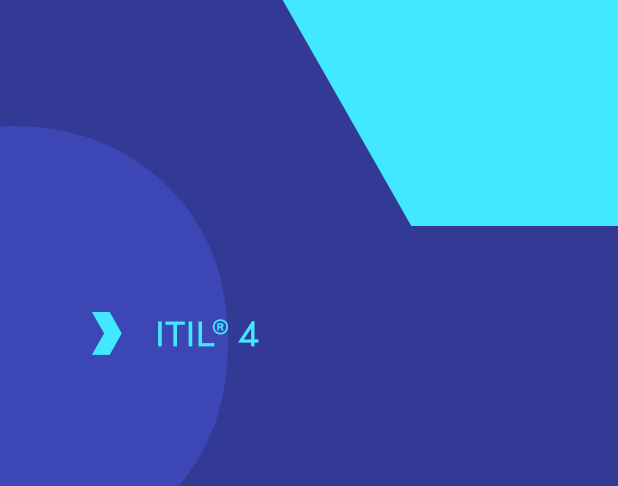ITIL is a collection of best practices in IT service management (ITSM). The framework allows you to monitor, sculpt and improve your IT services. Not just for IT teams, the ITIL courses incorporates a wide range of departments, from design to development, improving the way these teams interact and manage IT infrastructure.
ITIL® training
ITIL 4 provides a full-service digital operating model for the creating, delivering, and managing IT-enabled products and services, including emerging technologies such as AI and robotics.


Why choose ITIL 4?
ITIL 4, the latest evolution of the globally recognised ITSM framework, equips organisations and individuals with the tools to align IT services with business needs. It provides a flexible approach that ensures services are delivered efficiently, cost-effectively, and with a focus on continuous improvement.
The knowledge you’ll develop enables you to enhance service delivery, streamline processes, and boost career prospects. From an organisational perspective, adopting ITIL 4 leads to improved efficiency, better customer experiences, and alignment with strategic goals.
- Achieve a globally recognised certification
- Grasp the core concepts and guiding principles of ITIL 4
- Create, deliver and sustain value through IT services
- Improve and streamline IT operations
- Integrate Agile, DevOps and Lean methodologies into service management
- Enhance customer experience and satisfaction
- Align IT services with business goals to drive organisational success
- Enhance your career prospects
FAQs
Gain the tools to streamline processes, enhance customer satisfaction, and contribute to organisational growth. The ITIL 4 certifications helps individuals and teams thrive into today’s service-focused environment.
How do I choose the right ITIL 4 certification for me?
Before progressing further into the ITIL certification scheme, you must first pass ITIL 4 Foundation. This entry-level course teaches the key concepts of ITSM and will give you a solid grounding in the fundamental concepts and terminology used in the ITIL framework.
As each ITIL 4 course teaches a different aspect of ITSM, where to progress next is entirely down to you, and your given career aspirations.
Is ITIL 4 in demand?
ITIL has been a sought-after IT certification for over 35 years, and there are millions of qualified professionals worldwide. By certifying in ITIL 4, you will be taught a flexible, end-to-end operating model that will enable you to create, design and manage digitally enabled products and services effectively.
Is an ITIL 4 certification worth it?
According to the 2019 ITSM Benchmarking Report from Axelos, 83% of IT professionals believe ITIL certifications are essential for anyone working in IT service management. An ITIL 4 qualification equips individuals with the practical skills and tools needed to drive organisational success through IT service management and is therefore a worthwhile investment for anyone looking to progress their career in this field.
Are the ITIL 4 exams hard?
How difficult you will find the ITIL 4 exams is largely dependent on your experience, commitment to training, and the course you are completing. As an introductory course, the Foundation exam is achievable for those new to industry, but some of the other qualifications may require a deeper understanding of ITSM and the ITIL framework.
Career development & support
The ITIL 4 certification scheme is structured to support continuous professional development, from ITIL 4 Foundation through the Managing Professional or Strategic Leader pathways. Whether you’re starting your career as an IT professional or looking to specialise further, our flexible learning options and expert support can help you take the next step.
There’s lots to consider when choosing a training course. We have a variety of study options, different payment methods, and optional extras such as exam resit services that you might want to add to your learning package. Our help centre has all the information you need to make the right choice. Plus, our helpful customer service team are always on hand to answer any questions.
Visit our help centre

“We have certain clients and customers that will only work with people who are certified in ITIL® 4. As a result, providing this training from ILX and getting our teams certified has opened up many doors for us.”
Susanne Seidl, Specialist Learning & Development, Konica Minolta
learners